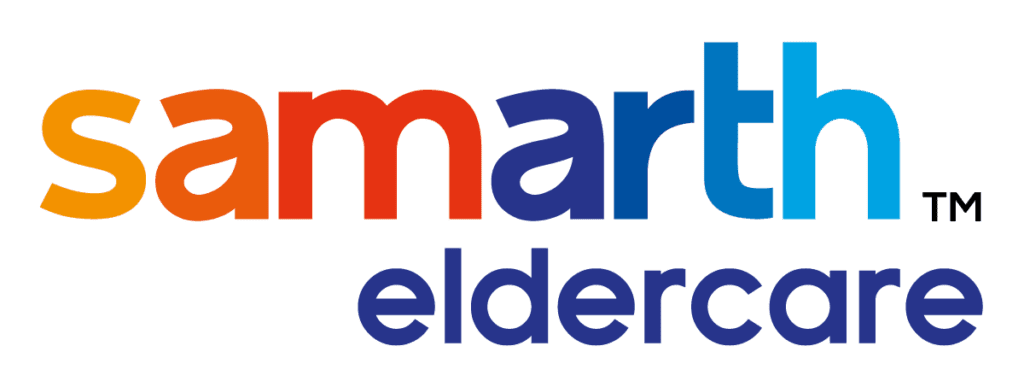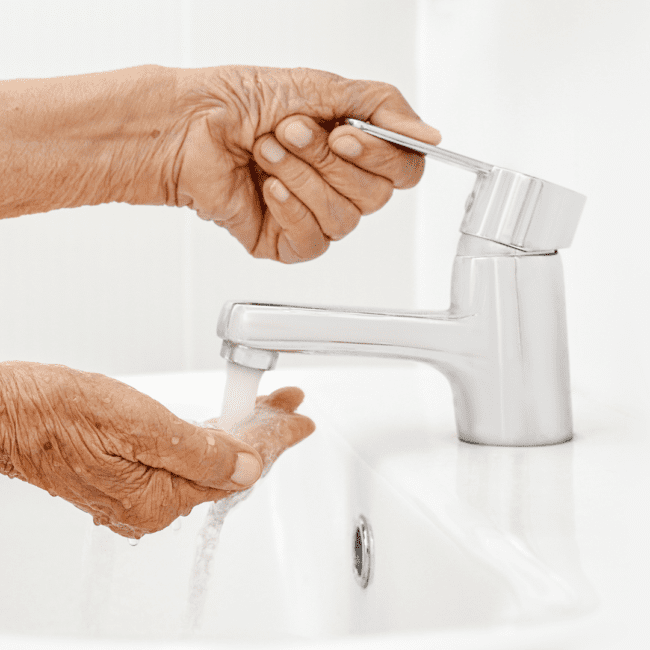The best healthcare is not in hospitals.
Yes, you read that right. As caregiving children, we are always concerned about our parents’ well-being. Often, we find ourselves pondering over the best, state-of-the-art healthcare centers and highly qualified doctors to tend to our aging parents if and when they fall sick.
Healthcare systems, designed around sickness, tend to be reactive to cure diseases. How can we define it as healthcare when, in reality, we are dealing with sick care?
We at Samarth understand that preventing problems for elders means more than just avoiding sickness. It’s about keeping them safe from accidents, helping them feel good mentally, and ensuring they’re not too weak. So, instead of waiting for them to get sick, why not take steps to keep them healthy?
3 Proven Strategies for Minimizing Hospitalization with Preventive Care for Elders
1. Immunization:
Encourage your parents and other elders in your community to stay on top of their immunization schedule. Vaccines are crucial for older adults to maintain their health and independence.
Here’s how different vaccines help:
-
Influenza vaccination:
As we age, our immune system becomes less robust; a weak immune system is susceptible to infections like the flu. In India, the flu season typically peaks during the monsoon, making it crucial for seniors to take preventive measures.
-
Pneumococcal Vaccination:
We should talk to our elders to get the Pneumococcal Vaccine; the vaccine reduces the risk of developing these serious illnesses. Not getting vaccinated leaves older adults susceptible to pneumococcal infections, which can result in severe illness, hospitalization, and even death.
-
Shingles Vaccine:
Another vital immunization is the shingles vaccine- it prevents the painful rash and nerve pain caused by the varicella-zoster virus. Studies have shown that immunization effectively lowers the risk of developing shingles in seniors; shingles can cause intense pain, discomfort, and potentially long-lasting complications. According to the Indian Journal of Dermatology, shingles prevalence increases with age, highlighting the need for proactive preventive measures.
- COVID-19 Vaccine: The world stopped when the pandemic hit our homes. As we engage with our elders, we must remind them about the COVID-19 vaccine. Older adults must protect themselves from the severe effects of the virus, including hospitalization and death. Vaccination plays a vital role in controlling the spread of COVID-19 and allowing older adults to engage in activities they enjoy.
- Tetanus, Diphtheria, Pertussis (Tdap or Td): Our elders must not take the Tdap or Td vaccine lightly; it protects against three serious diseases: tetanus, diphtheria, and pertussis. Tetanus, commonly known as lockjaw, can occur through contaminated wounds and cause severe muscle stiffness. Diphtheria affects the throat and can lead to breathing difficulties, while pertussis, or whooping cough, is highly contagious and can result in prolonged coughing fits.
- MMR: According to the World Health Organization (WHO), measles cases have risen globally, underscoring the importance of vaccination. As caregiving children, we must encourage our elders to get the MMR vaccine. It protects against three highly contagious diseases: measles, mumps, and rubella. Measles can cause severe complications such as pneumonia and brain inflammation. In India, where measles outbreaks still occur, unvaccinated individuals are particularly vulnerable.
In addition to these vaccines, it’s also crucial to consider regular boosters and check-ups. Elders should have their immunization records reviewed periodically to ensure they are up-to-date with the latest recommendations. Regular interaction with healthcare providers can help identify any gaps in their preventive care regimen.
Worried about your Elderly parents back home?
Call us today to arrange Care Like Son and Daughter™.
2. Screening for Preventive Care for Elders
The second strategy is Screening elders; early detection through screenings empowers seniors to take control of their health, identify conditions in their early stages, minimize costs, and allow seniors to initiate treatment promptly. Screening has numerous benefits: it prevents disease progression and minimizes complications. Think of screening as an early intervention that leads to more favorable treatment outcomes. Screenings also offer a higher likelihood of successful recovery, particularly for conditions like cancer and cardiovascular disease.
The result: Better quality of life, fewer symptoms, and less disability; early detection saves costs by avoiding medical expenses, hospital stays, or long-term care.
- Routine screenings for blood pressure, cholesterol levels, and blood sugar can catch potential issues before they become serious problems. Regular eye exams, hearing tests, and dental check-ups are equally important as they can detect and address issues that could affect the quality of life if left untreated.
- Moreover, encouraging our parents to participate in health fairs and community health programs can provide additional opportunities for free or low-cost screenings. These events often offer screenings for various conditions and can be an excellent resource for preventive care.
3. Preventive Actions for the Elderly
We have all heard the saying: Prevention is better than cure; taking proactive measures helps our elders maintain their health and prevent illness before it occurs. Studies state that this approach significantly reduces the risk of hospitalization and improves the overall quality of life.
Empowering aging parents through preventive care measures benefits their health and well-being; it provides peace of mind for their children. We know how falls are the leading cause of injury among elders, often resulting in hospitalization and long-term disability. Implementing measures to prevent falls, such as removing tripping hazards, installing grab bars, and promoting strength and balance exercises, can significantly reduce the risk of injuries.
- Additionally, preventive action also entails helping our parents opt for a healthy diet and get sound sleep and movement – they play a crucial role in preventing chronic diseases and maintaining overall health. Encourage them to eat a balanced diet rich in fruits, vegetables, whole grains, and lean proteins. Regular physical activity, such as walking, yoga, or light strength training, can help maintain mobility and muscle strength, reducing the risk of falls and improving overall well-being.
- Mental health is another critical aspect of preventive care. Engaging in social activities, hobbies, and regular mental exercises like puzzles or reading can help keep the mind sharp and reduce the risk of cognitive decline. Encouraging elders to stay connected with friends and family can also combat loneliness and depression, which are common in older adults.
- Ensuring our parents have access to resources like community centers, support groups, and educational workshops can provide them with the tools and knowledge they need to stay healthy and independent.
By adopting a proactive elder care approach to healthcare, we can help our parents lead healthier, happier lives, free from the constant worry of sickness. At Samarth, we are committed to supporting families in this journey, providing resources, guidance, and compassionate care every step of the way.
How Samarth Can Help?
We offer comprehensive support to ensure the well-being of your aging parents. With Samarth, your parents will receive compassionate, proactive care that enhances their quality of life and gives you peace of mind. Get details of essential immunizations and screenings for seniors. Contact Samarth: contact@samarthlife.org







